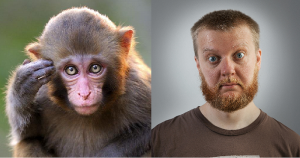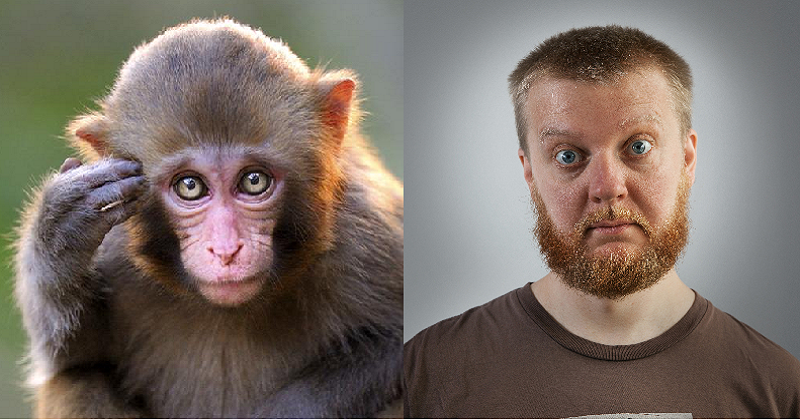
Humans & Monkeys Share Staring Behaviour: Study
Monkeys also exhibit the patterns same as humans in following another`s gaze throughout their lives. This reveals that the behaviour is deeply rooted in our evolutionary past says the researchers from their new study.
“Gaze-following is a crucial developmental pathway, which lays a foundation for acquiring language and interacting socially”, said Laurie Santos, Psychologist at the Yale University from the US.
“Here we find that gaze-following emerges in the same way in a species with an entirely different life history”, said Santos.

Alexandra Rosati, Santos from Harward University, Michael Platt from University of Pennsylvania (UPenn) and some others tested 481 rhesus monkeys to know how they live in a preserve to the upward glance of a researcher. Having more glance at human babies to find the researchers point of view even after they showed no interest. Monkeys became more flexible from their juvenile years and following the gaze and became habituated to repeated gazes .
“This is the first study to show such a close relationship between social development in humans and monkeys. Testing such a large number of monkeys will also enable this team to study individual behavioural and genetic variations between animals”, said Santos.
The monkeys became gaze sensitive by getting older. Monkeys adulthood are more varied and began showing same as human like sex differences with females. As they respond to gaze more than males. From the results, it is proved that exciting new evidence that monkeys social attention follows a human like trajectory in different age groups.
“Monkeys have different social experiences than humans, they grow up much faster than we do and do not share features of human ageing such as menopause. Yet they show the same changes as humans in this foundational social skill from infancy to old age”, said Rosati, lead author of the study.
“These findings suggest that some social capacities such as gaze following may have a deeper biological basis than previously thought”, Rosati added.